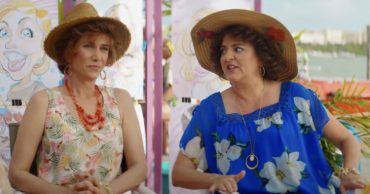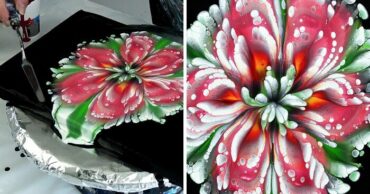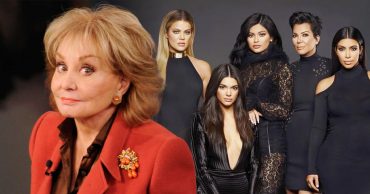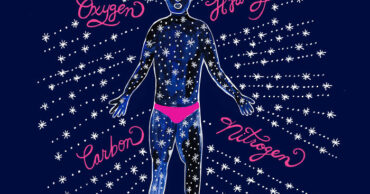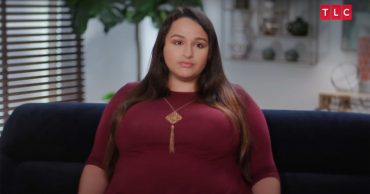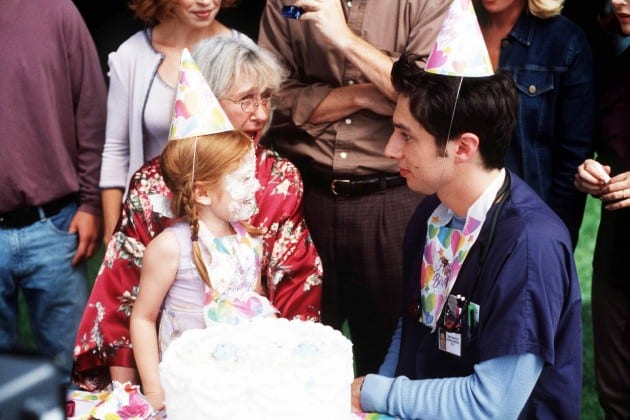
One could argue “My Old Lady” is really where Scrubs begins; after three episodes of finding its voice, “My Old Lady” comes in firing on all cylinders, a half hour that balances the show’s comedic and dramatic elements as well as any of the 175+ episodes that followed it. Scrubs was really at its best when it was finding balance between tragedy and beauty, aspiring to something much greater than most melodramatic hospital shows or schmaltzy office comedies littering network television at the time (and today); “My Old Lady” is a testament to what Scrubs could accomplish at its most ambitious, an episode that takes every single existing element of the show to this point (minus The Todd; this is a Scrubs without a high five) and arranges them all in perfect harmony.
“My Old Lady” initally disguises itself under two unsuspecting premises; the opening scene re-introduces conflict between Elliot and Carla, followed by J.D. announcing that “one out of every three patients admitted will die here,” immediately setting the stakes for the episode. For the first time, Scrubs fragments its main characters into their own individual sub-stories, each designed to integrate itself with the character conflicts established in the first three episodes – and smartly, pairs the central foursome off to resolve these issues. Turk and J.D. are in a yin/yang situation: J.D. is too empathetic with his patient Mrs. Tanner, while Turk takes the surgical approach to getting to know his patients; that is, referring to them by their ailment and paying attention to only their charts.
Immediately, Scrubs is introducing audiences to ideas of conflicting philosophies, something that would often be a basis for character exploration in early seasons. Turk assumes that it’s better he doesn’t know his patients, while J.D. is understanding that being too empathetic with the people in his care can be both dangerous and emasculating; and through each other, “My Old Lady” slowly helps the two unpack these problems. It happens fairly early in the episode, too; Turk hangs out with his patient David (even using him for some hallway bowling, a very weird, random shot), and J.D. puts his foot down with Mrs. Tanner’s family a little; taking cues from each other brings them closer to their patients, and makes them feel more in control of their patients’ situations.
Across the hallway, Carla and Elliot’s conflict is catalyzing the same progress, both for each individual character and their friendship as a whole. Elliot can’t talk to her immigrant patient, which angers Carla, admonishing Elliot for being on her private school high horse and too good to learn the primary language of 1/3 of the patients they have (which is ironic, considering Sarah Chalke can speak about 3,482 languages in real life). Piggybacking off Elliot’s behavior towards her in previous episodes, Carla and Elliot continue to struggle to find a common thread between them, making them the perfect thematic mirrors of J.D. and Turk; and equally, as “My Old Lady” turns from comedy to drama, it uses these pairings to show how young doctors learn how to survive when the realities of working in a hospital are shoved in their face.
“My Old Lady” essentially operates on a lie; after telling the audience that one of the three patients we’re seeing is about to die, it shows the audience that Mrs. Tanner is the one who is going to die, J.D. spending most of the episode trying to fight her on her decision to turn down kidney dialysis. When the episode turns and all three patients die at the same time, “My Old Lady” takes a big gamble with its audience; in 2015, it’s not surprising that a comedy, even a network comedy, could take such a philosophically dark turn – but in 2001, the third act of “My Old Lady” is a risky move that could’ve alienated an entire audience. The entire episode really hinges on that mislead; thankfully, the character work that is constructed underneath that story is so strong, it’s impossible for those climatic moments not to hit hard. Turk’s newfound humanity, J.D.’s blossoming strength as a doctor, and Elliot’s confidence are all at stake when their patients suddenly die on them, and “My Old Lady” gives those developments weight by presenting them in the context of their friendships. As J.D. later says, the only way they’re able to make it through the rest of the day is with the lessons they’ve learned from each other, a night that changed their worldview and how they view their profession.
It’s a powerful idea, a medical show that isn’t afraid to admit doctors can’t cure anything. As Cox so eloquently points out, what doctors do is essentially a stalling act; they’re “just trying to keep the game going” a bit longer with all of their patients, even though they know they’re fighting a losing battle. It sounds melodramatic, but “My Old Lady” delivers this in such grounded fashion, it’s impossible not to be heartbroken by David or Mrs. Tanner’s death (sorry, Elliot’s patient never becomes much of a character, thanks to her inability to communicate with Elliot), stark reminders that every patient in the emergency room is a roll of the dice, and the circumstances of a doctor’s job, especially those facing the medical extremes ER doctors and surgeons have to deal with, can be a very depressing thing (something Scrubs could always find a way to make funny, here with the image of Death beating J.D. at Connect Four). Being doctors allows these characters to access parts of their humanity in ways their interactions with friends couldn’t; while Cox remains the decided seer of the show, David and Mrs. Tanner alike serve important purposes in guiding our characters to the next step in their journeys, presences that never share any screen time, yet still find themselves working in perfect harmony in the episode’s climatic moments.
“My Old Lady” is really a flawless script, one that takes the simple idea of strengthening its central friendships through shared conflict, and expounds on them in fascinating, resonant ways. It marks the arrival of Scrubs‘ ambitious streak, which Lawrence and the writers of the show would dub their ‘concept episodes’; the few times a season they would try to deliver one of these powerful stories in some kind of unique, occasionally non-canonical context (like the medieval Season 7 finale). “My Old Lady” is the first of these, and arguably the best of them, a half hour that effortlessly moves from laughs to tears, then back to laughs again, without ever coming off as desperate or indulgent. What it does for its characters and its ideologies is amazing; this is the episode that firmly establishes Scrubs‘ true identity, as clearheaded and direct a half hour as you’ll see in your lifetime. To this day, “My Old Lady” still brings tears to my eyes; it’s a marvel of metaphysical contemplation, one that subtly explores the concept of human connection, and the role it plays in helping the healers of our world heal each other after great loss.
Other thoughts/observations:
– Directed by Marc Buckland, “My Old Lady” is also one of the show’s most visually dynamic episodes, with some wonderful extended Steadicam shots following characters as they move around the hospital (the lighting in the scene where Cox talks to J.D. about the inevitability of death is also quite striking).
– “What’s his name?” “Hernia Patient – but we’ve gotten closer, so I like to call him Hernia.”
– Writer Mike Schwartz makes his first appearance as a delivery guy, a character who would become a member of the B Squad’s B-squad in later seasons.
– Elliot: “I like to use sex as an ice breaker.”
– Mrs. Tanner: “I think I’m ready to die.” J.D.: “But with dialysis, you could live another 80-90 years.”
– “I’m a chunky monkey from Funky Town.” “I’m going to have trouble translating that.”
– Turk exercising is a riot. I miss the early seasons of Scrubs, which spent copious amounts of time hanging out in that particular waiting room.
– “Make ’em know you’re a man, not a boy.”
[Photo via NBC]
 Follow Us
Follow Us
